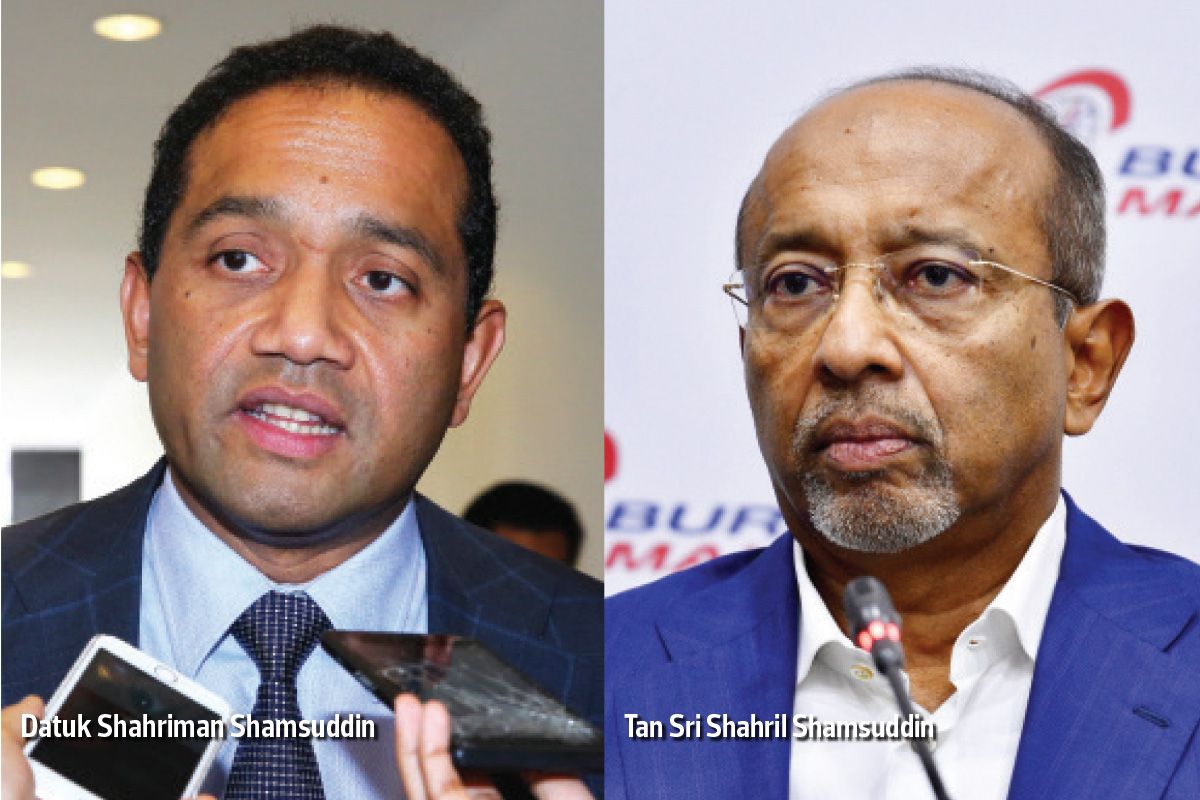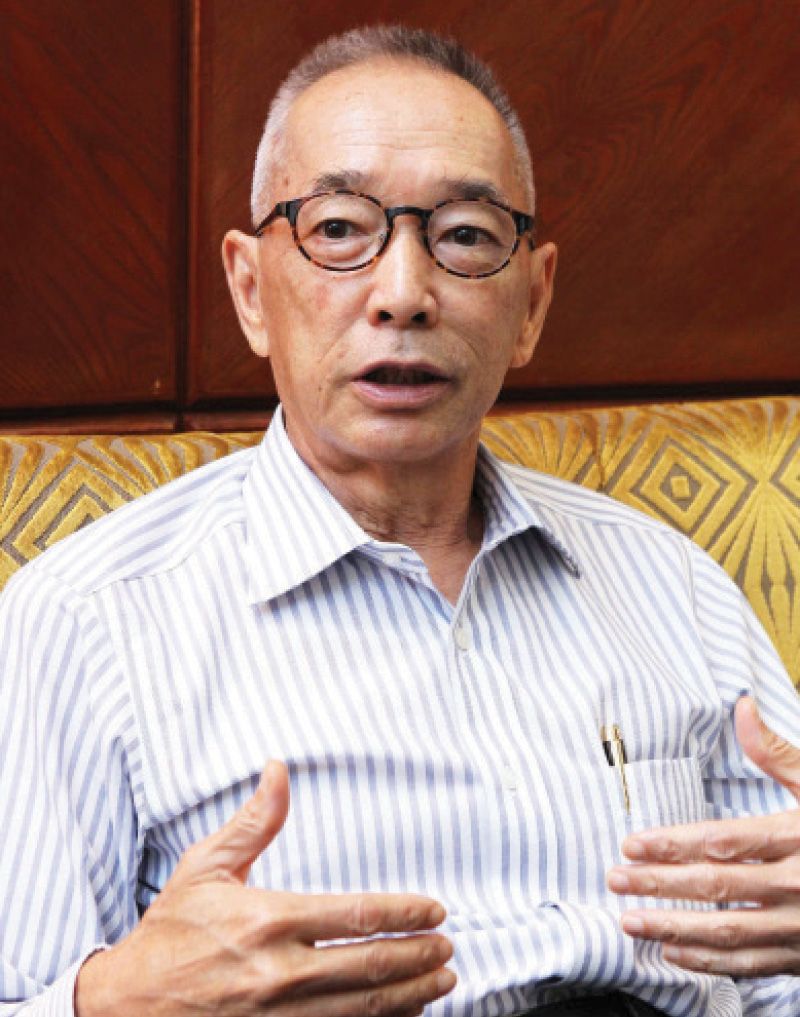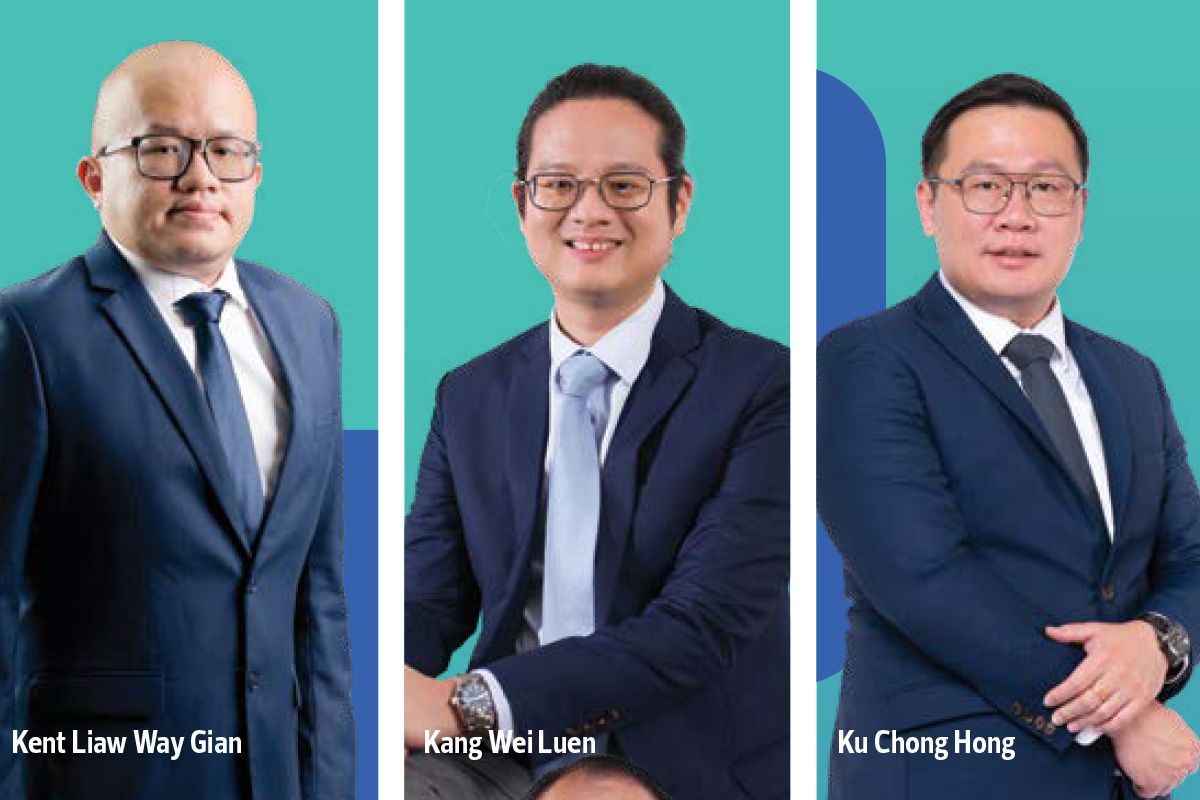This article first appeared in The Edge Malaysia Weekly on December 30, 2024 - January 12, 2025
In the corporate world, disagreements between shareholders and business partners are common and generate public interest, especially if they are related. In some cases, the departure of board members after a short stint raises questions.
Tan Sri Shahril Shamsuddin and Datuk Shahriman Shamsuddin
Shareholders and directors of Sapura Holdings
On Sept 23, Datuk Shahriman Shamsuddin, co-owner of Brothers Capital Sdn Bhd, filed a winding up petition on Sapura Holdings Sdn Bhd in the High Court, naming his brother and co-owner, Tan Sri Shahril Shamsuddin, and Datuk Rameli Musa as the second and third defendants respectively.
The two brothers are equal shareholders of Sapura Holdings, controlling a 40.5% direct stake each, while their equally owned vehicle Brothers Capital has a 15% stake. Businessman Rameli of Ingress Bhd holds the remaining 4% in Sapura Holdings.
Sapura Holdings has indirect 51.47% equity interest in Sapura Resources Bhd (KL:SAPRES), and an indirect 11.25% stake in Sapura Energy Bhd (KL:SAPNRG), among a host of other private companies.
At the crux of the dispute is the development project dubbed Project Apex — which involves the construction of Permata Sapura, a 52-storey skyscraper — in the KLCC area and near the Petronas Twin Towers. In a nutshell, Shahriman thought that Sapura Resources lacked the financial muscle to continue to operate Permata Sapura and wanted to sell the building, but Shahril believed that a cash call would solve all issues.
Sapura Resources has already received financial assistance of RM168 million from Sapura Holdings via the issuing of preference shares, and RM33.5 million from a rights issue.
Project Apex is a 50:50 joint venture (JV) inked in 2011 between Sapura Resources and KLCC Holdings Sdn Bhd to develop and construct Permata Sapura for a cash consideration of around RM108.5 million. The JV, Impian Bebas Sdn Bhd, invested about RM1.26 billion in Project Apex.
A key part of Project Apex involves three related companies — Sapura Energy, SEB Upstream Sdn Bhd and Sapura Secured Technologies Sdn Bhd — signing master lease agreements with Sapura Resources.
However, post-2018, Sapura Energy came under the control of Permodalan Nasional Bhd (PNB) following a RM4 billion cash call by the ailing oil and gas company. PNB’s equity interest in Sapura Energy rose from 12.6% to 40%, making it the largest shareholder.
In April 2023, KLCC Holdings proposed that Sapura Resources pay up RM85 million if it sought to exit Project Apex. Shahriman was keen, but Shahril was opposed to it.
Thus, Sapura Resources, which has a 15-year master lease agreement that commenced from Oct 1, 2021, to occupy about 70% of Permata Sapura, was caught between a rock and a hard place.
Fast forward to end January this year, 82.6% of the occupants at Permata Sapura were renting below the base rate of the master lease agreement, which has been weighing on Sapura Resources’ financials.
In Sapura Resources’ annual report, Permata Sapura had a net book value of RM408.09 million as at early October 2021 while valuers Raine & Horne International Zaki + Partners Sdn Bhd, in a shareholders’ circular, valued the building at RM1.526 billion as at April 30, 2024.
While the dispute at Sapura Holdings remains unresolved, governance issues have cropped up at Sapura Resources. In July, its minority shareholders took management to task at an annual general meeting (AGM), alleging that Shahriman, who was then the managing director, had acted in a manner that conflicted with the best interest of the company.
Other than its mainstay, the property business, Sapura Resources also has an aviation arm, offering private aviation services, including hangarage, aircraft handling and aircraft management services out of Subang Airport.
In July last year, Sapura Resources sought to exit the aircraft maintenance, repair and overhaul business after it was ravaged by the impact of the Covid-19 pandemic. Towards this end, Sapura Resources inked a non-binding conditional heads of agreement with RoyalJet LLC for the proposed disposal of its entire aviation business.
Much to the chagrin of the minorities, RoyalJet had signed a memorandum of understanding with Explorer Group Sdn Bhd to collaborate on private flight operations out of Subang Airport. Shahriman, who was still the managing director of Sapura Resources, was a shareholder and executive director of Explorer Group.
Sapura Resources’ minorities were miffed, to say the least.
On Sept 11, Shahriman was placed on a leave of absence as an investigation was carried out on the potential conflict of interest. On Oct 10, the company issued show cause letters to Shahriman and re-designated Reza Abdul Rahim, chief financial officer of Sapura Energy, as executive director and acting managing director.
On Oct 29, Sapura Resources announced Shahriman’s resignation.
“I have resigned due to disagreements with the board of directors of Sapura Resources and with my co-shareholders, particularly on the allegations against me that I have acted in conflict of interest with my duties as a director. To reiterate, I deny all allegations made and expressly reserve my rights,” he said, according to Sapura Resources’ exchange filing.
Is this saga at Sapura Resources part of the family feud or is it just an issue of governance? — By Jose Barrock
David Ho Sue San
Chairman and managing director of Hovid Bhd
The power struggle at Hovid Bhd, an Ipoh-based pharmaceutical firm renowned for its Ho Yan Hor herbal tea, centres on its 75-year-old managing director, David Ho Sue San.
A long-time custodian of the Hor Yan Hor brand founded by his family, David has clashed with Southeast Asian private equity firm TAEL Partners over the company’s future.
David and TAEL Partners teamed up in October 2017 to privatise Hovid at 38 sen a share, or RM243 million in total. Today, TAEL Partners, through its special-purpose vehicle Fajar Astoria Sdn Bhd (FASB), controls 63% of Hovid while David holds the second largest stake at 34%.
The disagreement erupted in 2021 when TAEL sought to sell its share in Hovid, potentially valuing the company at between RM850 million and RM990 million.
However, David, a trained pharmacist who transformed Hovid into a global pharmaceutical player with over 400 products and a presence in 50 countries, has been reluctant to relinquish his stake. Corporate observers speculate that David’s emotional attachment and the desire to preserve the legacy of his late father, Dr Ho Kai Cheong, who founded Hovid in 1941, may have influenced his stance.
David used legal means to block TAEL’s efforts. In October 2022, he filed a lawsuit alleging minority oppression, which was dismissed in January 2023. He promptly appealed. By June 2023, he had secured an injunction preventing an extraordinary general meeting that was meant to push the sale forward.
In July 2024, David sought an injunction from the Federal Court to prevent boardroom changes without his consent.
In October 2024, the Federal Court rejected David’s appeal to have the court review his claim of an alleged breach of an equitable bargain with FASB concerning board appointments. The claim was based on an understanding that both David and FASB would each have the right to appoint only two directors to the board of Hovid.
As a result, David was ordered to pay RM45,000 in costs over the dismissal. The Federal Court also dismissed an application by him for an injunction barring FASB from appointing directors.
David is holding on to Hovid as he has yet to accept TAEL’s offer of a 5.84% stake in Hovid and RM10 million if a sale proceeds successfully. — By Liew Jia Teng
Save by subscribing to us for your print and/or digital copy.
P/S: The Edge is also available on Apple's App Store and Android's Google Play.
- China suppliers mock tariffs with Nike, Lululemon deals on TikTok
- Yellen says sell-off in Treasuries shows US confidence loss, not dysfunction
- Reach Energy, Cahaya Mata, Able Global, Pestec, Bina Puri, Jentayu Sustainables
- Malaysia declares state funeral for Tun Abdullah Ahmad Badawi
- Nvidia to produce AI servers worth up to US$500b in US over four years
- Tariff shock awaits China after trade surplus hits $103 billion
- US steps up probes into pharmaceutical, chip imports, setting stage for tariffs
- Trump again accuses Zelenskiy of starting war as talks grind on
- Asian stocks set for cautious day as US trade probes sow more anxiety
- South Korea unveils US$23 billion support package for chips amid US tariff uncertainty




